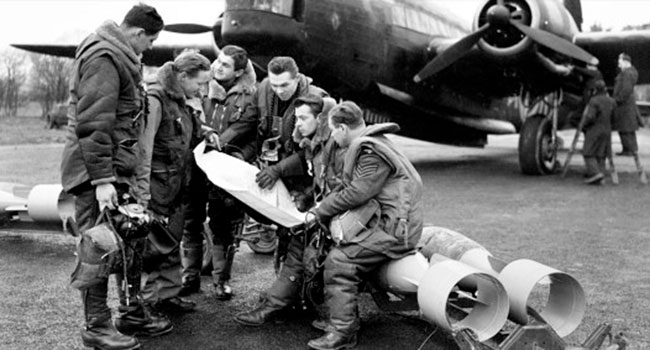More than 40,000 Ukrainian Canadians enlisted to fight overseas during the Second World War, partly to prove their patriotism.
In early years of the 20th century, discrimination aimed at them was nothing short of vitriolic.
During the First World War, about 80,000 Ukrainian immigrants were forced to register with the government as enemy aliens. If they failed to report regularly, they were arrested and thrown into internment camps. More than 8,500, including women and children, suffered that fate.
“They were sort of shocked by the experience,” said Jars Balan, former director of the Canadian Institute of Ukrainian Studies in the University of Alberta’s Faculty of Arts.
As a result, they rushed to enlist in droves from every province in the country two decades later, said Balan.
“Some of them were draft dodgers who didn’t want to serve in the Austro-Hungarian army,” he said. “This time, though, they wanted to show their commitment to Canada.”
Helping to bring those stories to light, Balan and his colleagues at CIUS have done much of the research for a new documentary film on the Ukrainian Canadian war effort, called A Canadian War Story. Produced by the Ukrainian Canadian Research and Documentation Centre in Toronto, it was directed by Winnipeg filmmaker and photographer John Paskievich.

A Ukrainian Canadian bomber command crew checks a map before a mission. U of A researcher Jars Balan and his colleagues in the Canadian Institute of Ukrainian Studies did much of the research behind a new documentary about the Ukrainian Canadian effort in the Second World War. (Photo: Public domain)
“The centre was sitting on these interviews they’d done 35 years ago” said Balan. “Finally a retired captain in the air force got involved, who took the bull by the horns and said, ‘We’re gonna make this bloody movie.’”
A Canadian War Story will screen for the first time online on Nov. 6 at 6 p.m. MT in advance of Remembrance Day.
Balan did the research on a number of stories in the film. Adding interviews already in the vault, he talked to surviving vets and scoured newspaper articles and personal memoirs.
While the film focuses mainly on the war’s military campaigns and the Ukrainian-Canadian men who participated, there are some stories featuring women, said Balan.
“One woman, Nadia Svarich, a music teacher from the Vegreville area, had a women’s band that performed across the country to whip up enlistment. They travelled back and forth across Canada a couple times, and at the end of the war ended up in England.”
If gaining acceptance as full-fledged Canadians was the aim of those who signed up, it seemed to have worked, at least partly, said Balan.
“It didn’t eliminate the bias completely, but it certainly helped turn the corner.
“When you share a foxhole with a guy and you’re both being shot at – whether you’re Scottish, Irish, Ukrainian, poet, whatever – you’re two guys trying to survive the war, and you help each other. Relationships formed in the trenches went a long way to relaxing the discrimination.
“And because the community stepped up to the plate in huge numbers and were very visible and active, that certainly made an impression on a lot of people.”
For tickets to the online screening of A Canadian Story and for more information, visit the film’s website.
| By Geoff McMaster
This article was submitted by the University of Alberta’s online publication Folio, a Troy Media content provider partner.
The views, opinions and positions expressed by columnists and contributors are the author’s alone. They do not inherently or expressly reflect the views, opinions and/or positions of our publication.


